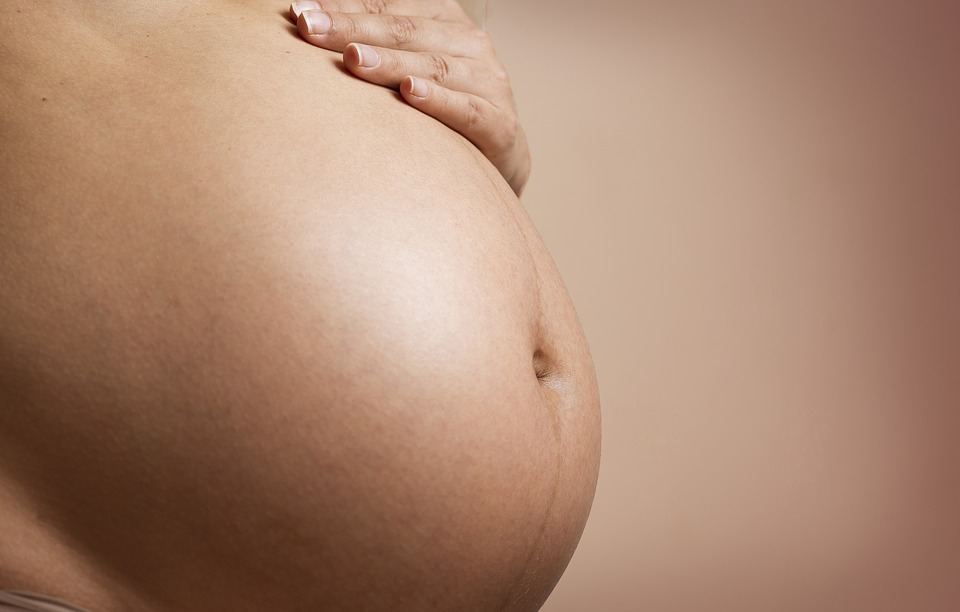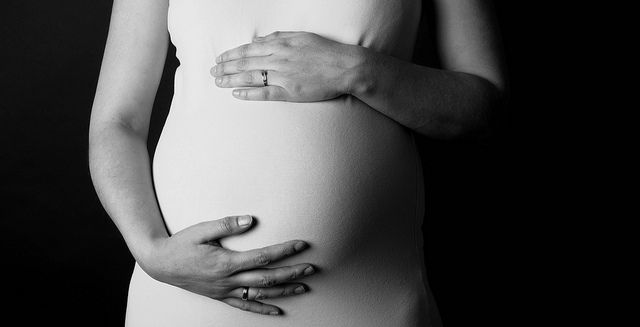Difference Between Gestation and Pregnancy
Key Difference – Gestation vs Pregnancy
The human’s reproduction is completely sexual reproduction. This involves the union of the sperms of a male with the ovum of a female. The aforementioned process is known as fertilization, and it produces a zygote which is diploid. The zygote divides by mitosis and results in an embryo which develops into the fetus. The fetus is grown and developed in the uterus. Gestation is the time period between conception (or fertilization) and birth. The baby grows and develops fully in this period in mother’s womb. The meaning of gestation is carrying the embryo or fetus in the female’s womb in mammalian or nonmammalian species. On the other hand, pregnancy is the process which includes series of changes occurs in woman’s body and tissues due to the reason for carrying or developing a fetus. The key difference between gestation and pregnancy is, gestation is the period of carrying the fetus in the woman’s womb while the pregnancy is the series of changes that take place in woman’s body and tissues due to the developing fetus in the female’s womb.
CONTENTS
1. Overview and Key Difference
2. What is Gestation
3. What is Pregnancy
4. Similarities Between Gestation and Pregnancy
5. Side by Side Comparison – Gestation vs Pregnancy in Tabular Form
6. Summary
What is Gestation?
The gestational age is determined as the time period since the first day of the last menstrual period to birth. Normally the conception occurs after two weeks of the last menstrual period. The time period in the gestation is called as gestational period and usually, this period is 266 days or 40 weeks or 9 months. During this period, the fetus grows and develops fully in the mother’s womb.
The fetal development occurs in three phases during the gestation period. They are an ovular period, embryonic period and the fetal period up to delivery. The ovular period and embryonic period last for 10 weeks. The ovulation takes place between 11-21 days from the first day of the last period. If the conception is successful, the sperm penetrates the egg and forms the unit that is consisted of a single set of 46 chromosomes called “zygote.” This unit is the basis for a new human being. The fertilized egg is spending a couple of days while traveling from fallopian tube towards the uterus. The fertilized egg is dividing and first converts to morula stage (an early embryonic period with blastomeres cells) and further dividing is resulting in the blastocyst. The blastocyst contains the inner cell mass (ICM) which later develops into the embryo. Anywhere, during 6-12 days after conception, the blastocyst embeds in uterus lining and starts developing into an embryo. The embryonic development occurs as follows,
- 3rd week- Development of brain, heart, gastrointestinal tract.
- 4-5 weeks- Arms and legs are visible.
- 6th week- Lung, jaws, nose, and palate formation.
- 7th weeks- Every essential organ is forming. Hair and nipple follicles are forming. Eyelids and tongue start forming.
- 8th week- External ears are forming. Every part of the adult body is visible now in the tiny body.
- 10th week- The last stage of the embryogenic period.

Figure 01: Gestation
In the period of thirteen weeks, the fetus is fully grown to 3 inches in length and about an ounce in weighing. The genitalia is clearly formed into male or female. The eyelids are closed will be reopened again in the 28th week of the gestation. The head is nearly the half the size of the fetus. After 13th week to 40th week, the fetus will be fully grown to a baby, and hence it starts the delivery time.
What is Pregnancy?
Pregnancy is a state in which a woman carries a fertilized egg inside her body and gives birth to a baby. The pregnancy is divided into three trimesters. Each one is three months long. The first trimester starts from last period to 13th week. The second-trimester stars from 14th week to the 27th week. The third-trimester stars from 28th to 40th week. The normal delivery occurs at the gestational age of 38-40 weeks. If the infants are born before the 37th week, it is called as premature delivery. The birth taking place after 42 weeks is known as post mature delivery.

Figure 02: Pregnancy
During the pregnancy, a woman gains weight and develops symptoms like constipation, heartburn, piles, varicose veins, leg cramps and back pains. The stretch marks appear on thighs, buttocks, abdomen, and breast. The pregnancy is diagnosed by urine pregnancy test. It is testing the human chorionic gonadotrophin (hCG) hormone in the blood and the urine.
What are the Similarities Between Gestation and Pregnancy?
- Both phenomena are taking place in females.
- Both processes are equally important in delivering a healthy baby.
- Both processes are interconnected each other.
- Both processes are equally important in maintaining human existence.
What is the Difference Between Gestation and Pregnancy?
Gestation vs Pregnancy | |
| Gestation is the period of carrying the fetus in the woman’s womb. | Pregnancy is the series of changes that take place in woman’s body and tissues due to the developing fetus in the womb. |
| Occurrence | |
| One or more gestations are possible in case of twins (multiple gestations are possible). | Only one pregnancy is possible at the same time. |
Summary – Gestation vs Pregnancy
The human reproduces sexually. A male sperm unites with female ovule through the process called fertilization and results in a zygote which develops into an embryo. The embryo finally develops into the fetus. The fetus develops in the uterus for 40 weeks or 9 months period to deliver a baby. Gestation is the time period between conception and birth. The baby grows and develops fully in this period in mother’s womb. The correct meaning of gestation is developing the embryo or fetus in the female’s womb in mammalian or nonmammalian species. And the pregnancy is the process of series of changes that take place in the woman’s body and tissues due to the reason for carrying or developing a fetus. This is the difference between gestation and pregnancy.
Download the PDF Version of Gestation vs Pregnancy
You can download PDF version of this article and use it for offline purposes as per citation note. Please download PDF version here Difference Between Gestation and Pregnancy
Reference:
1.“Fetal Development.” American Pregnancy Association, 2 Sept. 2016. Available here
2.“Pregnancy.” BabyCenter. Available here
3.The Editors of Encyclopædia Britannica. “Gestation.” Encyclopædia Britannica, Encyclopædia Britannica, inc., 25 Sept. 2013. Available here
Image Courtesy:
1.’Pregnant Woman Pregnant Pregnant Photos Gestation’ by Nikon D610 (Public Domain) via Max Pixel
2.’Pregnancy’by Tatiana Vdb (CC BY 2.0) via Flickr
ncG1vNJzZmivp6x7pbXFn5yrnZ6YsqOx07CcnqZemLyue8OinZ%2Bdopq7pLGMm5ytr5Wau26zxKyrmqyZpLturc2dZK%2BrXaW%2FprPNmqWcsV8%3D